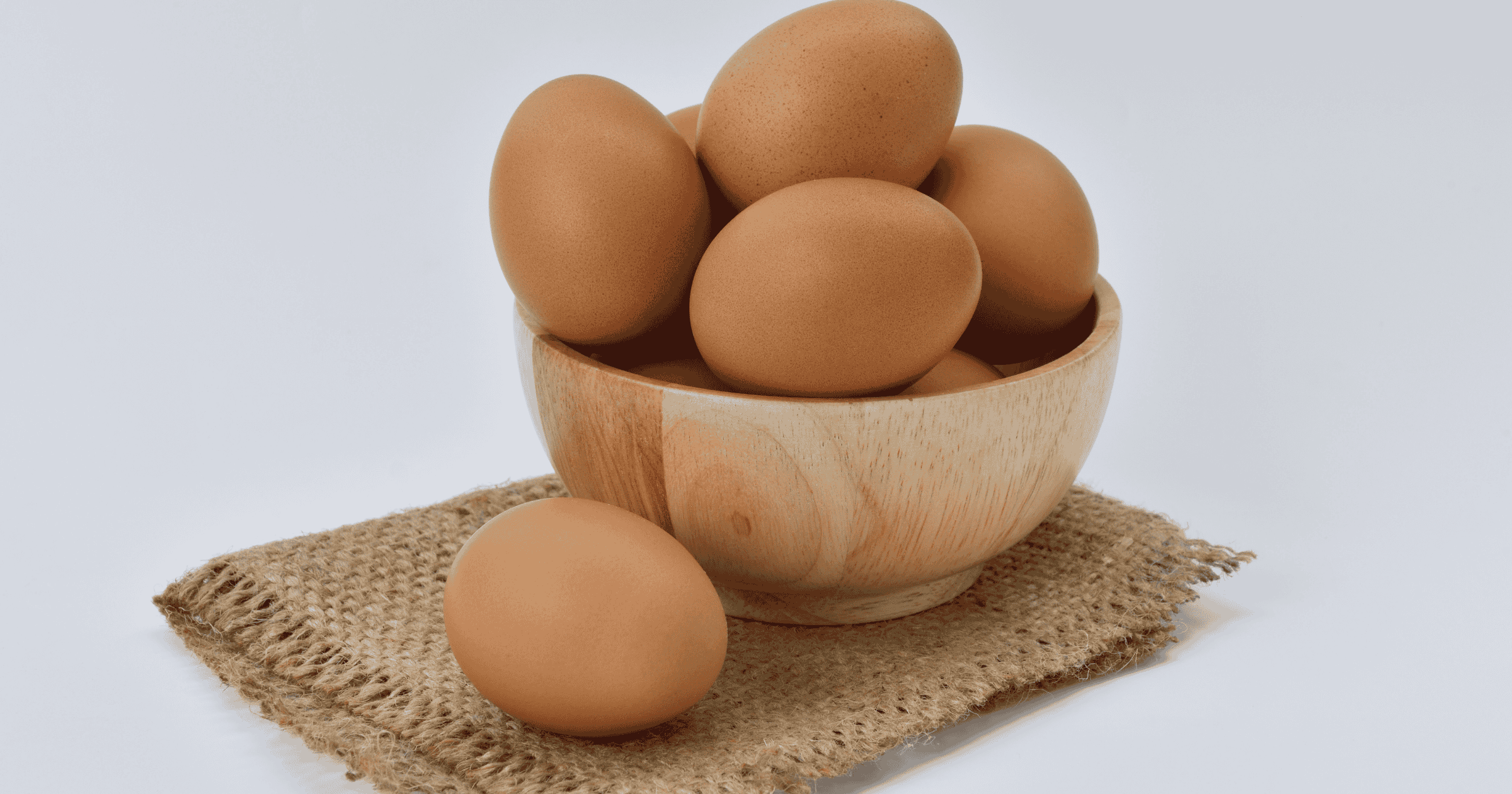
08 Apr How to Tell if an Egg Is Organic in Nigeria | Buyer’s Guide to Real Organic Eggs
In Nigeria today, “organic” is a buzzword—especially when it comes to food. From fruits and vegetables to chicken and eggs, more Nigerians are asking:
“Is this really organic?”
And when it comes to eggs, it can be hard to tell just by looking. Some vendors may label their eggs as organic to charge more, but not all of them are legit.
So how do you know if the eggs you’re buying are truly organic?
In this blog post, you’ll learn:
- What “organic eggs” actually means
- How to tell if eggs are organic in Nigerian markets
- Where to find trusted organic egg suppliers in Lagos and other cities
- Red flags to avoid when buying eggs
Let’s crack this egg open, shall we?
What Are Organic Eggs?
Before we talk about how to identify organic eggs, let’s first define what they are.
An organic egg is one that comes from a chicken raised without synthetic chemicals—meaning:
- No antibiotics or growth hormones
- No chemically processed feed
- Birds have access to outdoor space (free-range or pasture-raised)
- Feed is 100% organic, grown without pesticides or GMO seeds
In essence, organic eggs are produced naturally, with minimal interference from artificial farming practices.
✅ Organic ≠ Just being brown
✅ Organic ≠ Local or native chicken
✅ Organic = Clean, natural, healthy production process
Why Nigerians Are Looking for Organic Eggs
Across cities like Lagos, Abuja, and Port Harcourt, health-conscious consumers are turning to organic foods because:
- There’s rising concern about chemical-laced feeds and their effects on health
- More people are avoiding antibiotic-fed poultry due to resistance risks
- Organic eggs are believed to be richer in nutrients like Omega-3s and Vitamin D
- Many believe the taste is fresher and cleaner
But with no strict enforcement on organic labeling in Nigerian markets, how can you really tell?
How to Tell If an Egg Is Organic in Nigeria
Here are practical tips you can use when shopping for eggs in Nigeria—whether you’re at a supermarket, open market, or buying directly from a farm.
1. Ask the Right Questions
When buying eggs from a vendor or supplier, ask:
- What do you feed your birds?
- Are your chickens given antibiotics or growth hormones?
- Do they roam outdoors or are they kept in cages?
- Is the feed free from chemicals, GMO, or synthetic additives?
👉 If the answers are vague or uncertain, chances are the eggs aren’t organic.
2. Check the Eggshell Appearance
While you can’t tell everything from looking, organic eggs often show:
- Shells that aren’t perfectly smooth or shiny
- Slight color inconsistencies (not bleached or overly white)
- Sometimes dirt or natural stains if not overly sanitized
🚫 Beware of overly clean, plastic-looking eggs—they may be from heavily commercial farms using chemicals or sanitizers.
3. Examine the Yolk Color and Texture
A good indicator of organically raised hens is yolk appearance.
- Organic egg yolks are often deep yellow to orange (thanks to a varied natural diet)
- Yolk texture is thicker and firmer
- Whites are less watery and hold shape better when fried
Note: This test works best if you crack open a few eggs at home and compare.
4. Check for Labels or Certifications (When Buying Packaged Eggs)
In big stores or supermarkets in Nigeria, some packaged eggs may carry:
- “Organic” or “Naturally Raised” labels
- Information about feed and production style
- Contact info for the farm
⚠️ But be cautious: There is no official organic egg certification body in Nigeria yet, so anyone can label eggs “organic” for marketing purposes.
💡 Tip: Look for farms that are transparent and offer farm visits or photos of how they raise their chickens.
5. Buy From Trusted Organic Farmers or Markets
The best way to ensure your eggs are truly organic is to:
- Buy directly from small-scale farms practicing organic farming
- Visit farmers’ markets known for organic produce
- Join local farm-to-table cooperatives or food clubs
In Lagos, for instance, some organic farms offer home delivery or weekly subscriptions. Ask for referrals or check on Instagram/Facebook for farms that show their practices openly.
Where to Find Organic Eggs in Nigeria
Looking for organic eggs in Lagos, Abuja, or other cities? Here are a few options:
🔸 Local Organic Farms
- Farms in areas like Ajah, Lekki, Ikorodu, Ogun, or Iyana Ipaja raise poultry with natural methods.
- Ask to see the birds or their feed—transparency is key.
🔸 Organic Stores & Farmers’ Markets
- Lagos Farmer’s Market (held monthly)
- Terra Kulture’s Natural Food Fair
- Organic food stores in Victoria Island and Ikoyi
🔸 Online Organic Food Platforms
- Some platforms offer organic egg subscriptions or pre-orders for fresh farm eggs. Always verify their claims.
What Organic Eggs Are NOT
Let’s clear up a few misconceptions that are common in Nigeria:
| Myth | Reality |
|---|---|
| Brown eggs are always organic | False. Brown eggs just come from brown-feathered birds. Color ≠ organic |
| Village eggs are automatically organic | Not always. Many “local” hens still eat leftover kitchen waste or chemicals |
| Organic eggs are bleach-free eggs | Bleaching eggs is rare; not bleaching doesn’t mean organic |
| Free-range eggs are organic | Only if they’re also fed certified organic feed |
Are Organic Eggs Worth the Extra Cost?
In Nigeria, organic eggs are more expensive due to:
- Organic feed cost (imported or specially grown)
- Lower egg output from free-range chickens
- Higher labor and management efforts
But here’s the thing:
✅ You’re paying for cleaner food, better animal welfare, and long-term health.
If you’re a family with children or someone with health conditions, investing in clean, chemical-free eggs can be worth it.
For Egg Farmers: Should You Go Organic?
If you’re a poultry farmer considering organic production, here’s what to note:
| Pros | Cons |
|---|---|
| Can charge premium prices | More expensive feed & space requirements |
| Growing health-conscious market | Slower egg production cycle |
| Niche market loyalty | Lack of certification standards in Nigeria |
You’ll need:
- Land for pasture or free-range
- Access to organic feed or ability to grow your own
- Honest branding to build trust with buyers
💡 Focus on transparency and education—many Nigerians will pay more for quality if they trust the source.
Summary: Quick Checklist to Spot Organic Eggs in Nigeria
✅ Ask the farmer or seller about feed, antibiotics, and housing
✅ Inspect yolk color and egg texture
✅ Avoid eggs that look “too perfect” or commercialized
✅ Buy from transparent farms or known organic stores
✅ Don’t rely on shell color or packaging alone
Conclusion
In a country where food labeling is loosely regulated, knowing how to identify organic eggs puts the power in your hands. Whether you’re shopping in Lagos or sourcing for your kitchen in Ibadan, remember:
Real organic eggs are about how the chicken is raised, not just what the egg looks like.
Want help sourcing fresh, organic eggs in Lagos or starting your own backyard organic flock?
📩 Reach out for trusted farm referrals or poultry training opportunities. Let’s make healthy food accessible and honest in Nigeria.
Recent posts
- How to Make Akara and Moi Moi with Farm Eggs | Delicious Nigerian Recipes
- How to Make Perfect Omelettes with Farm Eggs | Easy, Delicious Recipe
- Easy Egg Salad Recipes with Farm Fresh Eggs | Delicious & Nutritious
- Deviled Eggs with Local Nigerian Ingredients | Easy Recipe
- Delicious Nigerian Dishes Made with Eggs | Tasty Egg Recipes
Your cart
Your cart is currently empty!








No Comments